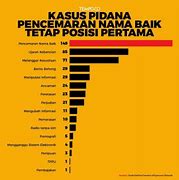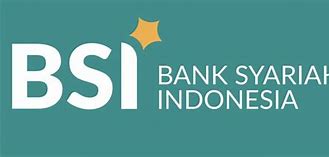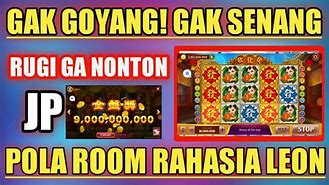
Hamengkubuwono IX was born Raden Mas Dorodjatun in Sompilan, Ngasem, Yogyakarta on 12 April 1912 to Gusti Pangeran Haryo (Prince) Puruboyo and Raden Ajeng Kustillah. When Hamengkubuwono IX was three, he was named Crown Prince to the Yogyakarta Sultanate after his father ascended to the throne and became Sultan Hamengkubuwono VIII.
Hamengkubuwono IX had a distinctly Western education. When he was four, he was sent away to live with a Dutch family. After completing his primary and secondary education in 1931, Hamengkubuwono IX left Indonesia to attend the Leiden University in the Netherlands. In Holland, Hamengkubuwono IX took Indonesian studies and economics. He returned to Indonesia in 1939.
With the death of Hamengkubuwono VIII in October 1939, Hamengkubuwono ascended to the throne with a coronation ceremony on March 18, 1940. His full title is “Sampeyan Dalem Ingkang Sinuwun Kanjeng Sultan Hamengkubuwono Senopati Ing Alogo Ngabdurrakhman Sayidin Panotogomo Kholifatullah Ingkang Kaping Songo.” During his coronation speech, Hamengkubuwono recognized his Javanese origins and said “Even though I have tasted Western Education, I am still and will always be a Javanese.”[1]
Sri Sultan Hamengkubuwono IX also became a noted reformer. In his reign, the office of the Sultan adopted a more democratic and decentralized approach. An example of this was the granting of more power to local village chiefs and general modernization of the way in which the court was managed. Hamengkubuwono IX also changed the ways in which the Sultanate held its traditional ceremonies; doing away with ceremonies which he considers to have gone obsolete.
In 1942, the Dutch Colonial Government in Indonesia was defeated by the Japanese Imperial Army. As the Japanese Imperial Army consolidated their hold on Indonesia, many suggested that Hamengkubuwono IX evacuate himself and seek asylum in Australia or the Netherlands. Hamengkubuwono IX refused this offer, insisting that Sultan has to stay close to its people in times of crisis.
Transition from Old Order to Orde Baru
During the G30S Movement, in the course of which six Generals were kidnapped from their homes and killed, Hamengkubuwono IX was present in Jakarta. That morning, with President Sukarno’s location still uncertain, Hamengkubuwono was contacted by Suharto, who was now a Major General and the Commander of Kostrad for advice. Suharto suggested that because Sukarno’s whereabouts are still unknown, Hamengkubuwono IX should form a provisional Government to help counter the movement.[3] Hamengkubuwono IX rejected the offer and contacted one of Sukarno’s many wives who confirmed Sukarno’s whereabouts.
After Suharto had received Supersemar in March 1966, Hamengkubuwono IX and Adam Malik joined him in a triumvirate to reverse Sukarno’s policies. Hamengkubuwono IX was appointed Minister of Economics, Finance, and Industry and charged with rectifying Indonesia’s Economic problems. He would hold this position until 1973.
Ever since Mohammad Hatta resigned from the Vice Presidency in December 1956, the position had remained vacant for the rest of Sukarno’s time as President. When Suharto was formally elected to the Presidency in 1968 by the People’s Consultative Assembly, it continued to remain vacant. Finally in March 1973, Hamengkubuwono IX was elected as Vice President alongside Suharto who had also been re-elected to a 2nd term as President.
Hamengkubuwono IX’s election was not a surprise as he was a popular figure in Indonesia. He was also a civilian and his election to the Vice Presidency was hoped to complement Suharto’s military background. Despite being officially elected in 1973, it can be said that Hamengkubuwono IX had been the de facto Vice President beforehand as he regularly assumed the leadership of the country whenever Suharto was out of the country.[4]
As Vice President, Hamengkubuwono IX was put in charge of welfare and was also given the duty of supervising economic development.[5] It was expected that the Suharto and Hamengkubuwono IX duet would be retained for another term. However, Hamengkubuwono IX had become disillusioned with Suharto’s increasing authoritarianism and the increasing corruption.[6]
These two elements were also recognized by protesters who had demanded that Suharto not stand for another term as President. These protests reached its peak in February 1978, when students of Bandung Technological Institute (ITB) published a book giving reasons as to why Suharto should not be elected President. In response, Suharto sent troops to take over the campus and issued a ban on the book.
As a man who believed in democracy, Hamengkubuwono could not accept what Suharto had done. In March 1978, Hamengkubuwono rejected his nomination as Vice President by the MPR. Suharto asked Hamengkubuwono to change his mind, but Hamengkubuwono continued to reject the offer and cited health as his reason for not accepting the nomination.[7] Suharto took Hamengkubuwono IX’s rejection personally and in his 1989 autobiography would claim credit for conceiving the 1 March General Offensive.
Hamengkubuwono IX had been active with Scouts from the days of the Dutch colonial government and continued to look after the movement once Indonesia became independent. In 1968, Hamengkubuwono IX was elected Head of the national Scout movement. Hamengkubuwono IX was also awarded the Bronze Wolf, the only distinction of the World Organization of the Scout Movement, awarded by the World Scout Committee for exceptional services to world Scouting, in 1973.
Hamengkubuwono IX died at the George Washington University Medical Center in the United States on October 1, 1988 and was buried at Imogiri. There is a special museum dedicated to him in the sultan’s palace (kraton) in Yogyakarta. He was also given the title National Hero of Indonesia, a distinction for Indonesian patriots. He was replaced by his son, Raden Mas Herdjuno Darpito, who took the name Hamengkubuwono X.
Hamengkubuwono IX never had a Queen Consort during his reign; preferring instead to take four concubines from which he had 21 children.
Hamengkubuwono IX was a fan of wuxia movies and novels.[8] . He also enjoyed cooking and headed an unofficial cooking club which included Cabinet Ministers as its members.
Tags: sri sultan hamengku buwono IX, Sri Sultan HB IX
This entry was posted on April 13, 2008 at 2:02 pm and is filed under Sri Sultan HB IX. You can follow any responses to this entry through the RSS 2.0 feed. You can leave a response, or trackback from your own site.
KOMPAS.com - Sri Sultan Hamengkubuwono IX adalah Sultan Yogyakarta kesembilan yang berperan besar dalam sejarah kemerdekaan Indonesia.
Pasalnya, ia memiliki peran dalam perjuangan mempertahankan kemerdekaan dan integrasi bangsa.
Setelah kemerdekaan Indonesia diproklamasikan, Sri Sultan Hamengkubuwono IX mengeluarkan maklumat 5 September 1945 dan membentuk Komite Nasional Indonesia Daerah di Yogyakarta.
Sri Sultan Hamengkubuwono IX juga dikenal sebagai Bapak Pramuka Indonesia yang pernah menempati jabatan penting di pemerintahan.
Seperti contohnya, ia merupakan Gubernur Daerah Istimewa Yogyakarta pertama setelah kemerdekaan, Wakil Presiden Indonesia kedua periode 1973-1978, dan menjabat sebagai menteri negara selama beberapa periode.
Baca juga: Amanat 5 September 1945: Bergabungnya Yogyakarta dengan NKRI
Sri Sultan Hamengkubuwono IX lahir di Ngasem, Yogyakarta, pada 12 April 1912 dengan nama asli Gusti Raden Mas Dorodjatun.
Ia merupakan putra dari Sri Sultan Hamengkubuwono VIII dan Raden Ajeng Kustilah.
Ketika baru berusia dua tahun, Dorodjatun menyandang status sebagai Putra Mahkota Yogyakarta. Kemudian, di usia empat tahun, ia telah dididik untuk tinggal terpisah dari keraton.
Dorodjatun tinggal bersama keluarga Belanda, Mulder, yang menjabat sebagai kepala sekolah Neutrale Hollands Javaanse Jongens School di daerah Gondokusuman.
Selama tinggal bersama keluarga Mulder, Dorodjatun dipanggil dengan nama Henkie, yang diambil dari nama Pangeran Belanda, Hendrik.
Nama Henkie terus melekat padanya sampai ia sekolah dan kuliah di Belanda.
Baca juga: Hoogere Burgerschool (HBS), Sekolah Menengah Umum Hindia Belanda
The Indonesian War of Independence
Directly after the declaration of Indonesian independence at 17 August 1945, Hamengkubuwono IX together with Paku Alam VIII, the Prince of Pakualaman decided to support the newly formed Republic. Hamengkubuwono IX’s support was immediately recognized by the Central Government with an appointment to the Life-Governorship of Yogyakarta with Paku Alam VIII as Vice Governor. Yogyakarta’s status was also upgraded to that of Special Region. In addition, Hamengkubuwono IX served as Yogyakarta’s Military Governor and was also Minister of the State from 1945-1949.
It was not long however, before the Dutch returned to lay claim to their former colony. Hamengkubuwono IX played a vital role in the resistance. In early 1946, the capital of Indonesia was quietly relocated to Yogyakarta, in that time the Sultan gave the new government some funds. When Indonesia first sought a diplomatic solution with the Dutch Government, Hamengkubuwono IX was part of the Indonesian delegation.
Things took a turn for the worse on 21 December 1948. That day, the Dutch successfully occupied Yogyakarta and arrested Sukarno and Hatta, Indonesia’s first President and Vice President. The Dutch didn’t dare to overthrow the Sultan however. Hamengkubuwono IX did not leave Yogyakarta and continued to serve as Governor. The Dutch viewed him with suspicion and at one stage began to entertain the idea that Hamengkubuwono IX was either planning to make Yogyakarta a completely autonomous region or setting his eyes on the leadership of the Republic.[2]
Minister in the Indonesian Government
After Indonesia’s Independence was recognized by the Dutch Government, Hamengkubuwono IX continued to serve the Republic. In addition to continuing his duties as Governor of Yogyakarta, Hamengkubuwono IX continued to serve in the Indonesian Government as Minister.
Hamengkubuwono IX served as Minister of Defense and Homeland Security Coordinator (1949-1951 and 1953), Vice Premier (1951), Chairman of the State Apparatus Supervision (1959), Chairman of the State Audit Board (1960-1966), and Coordinating Minister for Development while concurrently holding the position of Minister of Tourism (1966).
In addition to these positions, Hamengkubuwono IX have also served as Chairman of the Indonesian National Sports Committee (KONI) and Chairman of the Tourism Patrons Council.
The 1 March General Offensive
In early 1949, Hamengkubuwono IX conceived the idea of a major offensive to be launched against Yogyakarta and the Dutch troops occupying it. The purpose of this offensive was to show to the world that Indonesia still existed and that it was not ready to surrender. Hamengkubuwono IX also thought that this would also give the idea of Indonesian independence some legitimacy in the eyes of the international community.
The idea was suggested to General Sudirman, the Commander of the Indonesian Army and received his approval. In February 1949, Hamengkubuwono IX had a meeting with then Lieutenant Colonel Suharto, the man chosen by Sudirman to be the field commander for the offensive. After this discussion, preparations were made for the offensive. This involved intensified guerilla attacks in villages and towns around Yogyakarta so as to make the Dutch station more troops outside of Yogyakarta and thin the numbers in the city itself.
On 1 March at 6 AM, Suharto and his troops launched the 1 March General Offensive. The Offensive caught the Dutch by surprise. For his part, Hamengkubuwono IX allowed his palace to be used as a hide out for the troops. For 6 hours, the Indonesian troops had control of Yogyakarta before finally retreating. The Offensive was a great success, inspiring demoralized troops all around Indonesia and most importantly, caused the United Nations to pressure the Netherlands to recognize Indonesia’s Independence.
Menjadi Sultan Yogyakarta
Sesampainya di Batavia pada Oktober 1939, Dorodjatun dijemput oleh keluarganya di Pelabuhan Tanjung Priok.
Ia menginap di Hotel Des Indes karena dijadwalkan menghadiri acara makan malam di Istana Gubernur Jenderal Hindia Belanda bersama keluarganya.
Baca juga: Biografi Sri Sultan Hamengkubuwono II
Menteri Koordinator Bidang Ekonomi, Keuangan, dan Industri RI
Menteri Negara Ekonomi, Keuangan, dan Industri RI
Menteri Ekonomi dan Keuangan RI
Gusti Raden Mas Dorodjatun atau Sri Sultan Hamengkubuwana IX (bahasa Jawa: Sri Sultan Hamengkubuwono IX) lahir di Ngayogyakarta Hadiningrat, pada tanggal 12 April 1912. Ia meninggal di Washington DC, Amerika Serikat, 2 Oktober 1988 pada umur 76 tahun. Ia adalah salah seorang Sultan yang pernah memimpin di Kasultanan Yogyakarta (1940-1988) dan Gubernur Daerah Istimewa Yogyakarta yang pertama setelah kemerdekaan Indonesia. Ia pernah menjabat sebagai Wakil Presiden Indonesia yang kedua antara tahun1973-1978. Ia juga dikenal sebagai Bapak Pramuka Indonesia, dan pernah menjabat sebagai Ketua Kwartir Nasional Gerakan Pramuka.
TEMPO.CO, Jakarta - Kabar mengenai Presiden Joko Widodo alias Jokowi yang ingin bertemu dengan Ketua Umum Partai Demokrasi Indonesia Perjuangan (PDIP) Megawati Soekarnoputri masih belum mengendur. Kali ini, Jokowi dikabarkan melobi Gubernur Daerah Istimewa Yogyakarta (DIY) Sri Sultan Hamengkubuwono atau Sultan HB X untuk memfasilitasi bertemu dengan Megawati.
Informasi tersebut dibagikan oleh Pengamat Militer Connie Rahakundini Bakrie kepada Tempo. Connie Bakrie mengungkapkan bahwa dirinya telah bertemu dengan Sultan HB X di Jakarta pada Selasa, 6 Februari 2024. Connie mengatakan, Sultan bercerita bahwa dia dimintai Presiden Jokowi untuk memoderatori pertemuan dengan Mantan Presiden Kelima Indonesia itu.
Baca berita dengan sedikit iklan, klik di sini
“Apakah berkenan memfasilitasi pertemuan dengan Megawati?” kata Connie Bakrie kepada Tempo. Sultan juga menyebut Jokowi sekarang dalam situasi panik.
Tak hanya itu, Connie juga mengungkapkan bahwa Sultan HB X menasihati Jokowi agar sikap politiknya tidak menyakiti Megawati. Menurut Connie, alasan Sultan melakukan itu adalah karena Megawati merupakan putri dari Soekarno, Proklamator Indonesia.
“Sultan ingatkan tiga kali, jangan sakiti Bu Mega,” ucapnya.
Seperti diketahui, akhir-akhir ini Jokowi memang diisukan berusaha untuk bisa bertemu dengan pimpinan partai berlambang banteng tersebut. Lantas, apa sebenarnya alasan Jokowi ingin bertemu Megawati? Simak rangkuman informasi selengkapnya berikut ini.
Jajaki Kemungkinan Koalisi
Dalam laporan Koran Tempo berjudul "Kenapa Jokowi Ingin Menemui Megawati", seorang kolega Jokowi mengungkapkan saat ini alasan Jokowi untuk menemui Megawati lebih banyak dipengaruhi oleh kondisi pemilihan umum (Pemilu) terbaru.
Salah satunya adalah image Jokowi yang babak belur karena dituding menjadi dalang di balik putusan Mahkamah Konstitusi (MK) yang dinilai menjadi karpet merah untuk Gibran Rakabuming Raka, putra sulungnya, maju sebagai calon wakil presiden pada Pilpres 2024. Gibran menjadi calon wakil presiden berpasangan dengan Prabowo Subianto. Pencalonan Gibran itu membuat Jokowi dan Megawati berpisah jalan karena Jokowi tidak lagi mendukung pasangan Ganjar Pranowo-Mahfud Md yang diusung PDIP.
Di sisi lain, muncul juga dugaan Jokowi ingin kembali membangun komunikasi dengan Megawati untuk menjajaki kemungkinan koalisi Prabowo-Gibran dan Ganjar-Mahfud Md, apabila terjadi putaran kedua Pilpres 2024 melawan Anies-Muhaimin Iskandar.
Sebagai informasi, putaran kedua pemilihan presiden 2024 berpeluang terjadi apabila melihat elektabilitas tiga paslon berdasarkan hasil survei sejumlah lembaga. Menurut survei, elektabilitas ketiga calon presiden dan calon wakil presiden, yakni Prabowo-Gibran, Ganjar-Mahfud, dan Anies -Muhaimin, masih berada di bawah 50 persen. Pemilihan presiden satu putaran hanya bisa terjadi jika ada salah satu pasangan calon yang memperoleh suara lebih dari 50 persen.
Dua sumber Tempo di PDIP dan lingkaran Istana mengatakan, Jokowi telah meminta bantuan Bendahara Umum PDIP Olly Dondokambey untuk menghubungkannya dengan Megawati. Keinginan Jokowi tersebut diutarakan ketika dia berkunjung ke Manado, Sulawesi Utara, pada 18 Januari lalu. Meski begitu, Olly belum menyampaikan keinginan Mantan Wali Kota Solo itu ke Megawati.
Olly juga tidak membantah kabar mengenai adanya permintaan Jokowi untuk memfasilitasinya bertemu dengan Megawati. Dia hanya mengangguk saat Tempo meminta tanggapan soal informasi tersebut.
Di sisi lain, Koordinator Staf Khusus Presiden, Ari Dwipayana membantah kabar bahwa Jokowi telah meminta untuk bertemu dengan Megawati. Menurutnya, narasi tersebut sangat aneh.
“Itu sama sekali tidak benar,” kata Ari, 23 Januari 2024. “Seolah-olah mendapatkan informasi dari lingkup internal PDIP dan dipersepsikan sebagai sebuah fakta, tapi sesungguhnya hal itu tidak pernah terjadi. Tidak ada permintaan bertemu.”
Sementara itu, politikus PDIP Deddy Yevri Hanteru Sitorus mengatakan kalau Presiden Jokowi ingin bertemu dengan Ketua Umum Megawati untuk membahas kepentingan negara, Jokowi tidak perlu menunggu pemilihan presiden atau Pilpres 2024 selesai. Selain itu, Deddy juga mengatakan partainya tidak perlu mengundang Jokowi sebagai presiden kalau memang ingin pertemuan itu terjadi.
“Kalau presiden perlu, panggil saja kami ke istana, panggil DPP ke istana kalau mau bicara soal bangsa, ada Mbak Puan sebagai Ketua DPR, kalau bicara soal bangsa tinggal undang Mbak Puan,” kata Deddy ditemui di Kawasan Cikini, Jakarta Pusat, pada Kamis, 25 Januari 2024.
Sebelumnya, Presiden Jokowi pernah mengatakan sampai saat ini belum ada rencana bertemu dengan Ketua Umum PDIP Megawati Soekarnoputri. Ia juga menyebut hubungan dengan Megawati dan PDIP biasa saja.
“Belum (ada rencana bertemu). Belum ada undangan,” kata Jokowi saat ditemui di Lanud Halim Perdanakusuma pada Rabu, 24 Januari 2024.
Wir verwenden Cookies und Daten, um
Wenn Sie „Alle akzeptieren“ auswählen, verwenden wir Cookies und Daten auch, um
Wenn Sie „Alle ablehnen“ auswählen, verwenden wir Cookies nicht für diese zusätzlichen Zwecke.
Nicht personalisierte Inhalte und Werbung werden u. a. von Inhalten, die Sie sich gerade ansehen, und Ihrem Standort beeinflusst (welche Werbung Sie sehen, basiert auf Ihrem ungefähren Standort). Personalisierte Inhalte und Werbung können auch Videoempfehlungen, eine individuelle YouTube-Startseite und individuelle Werbung enthalten, die auf früheren Aktivitäten wie auf YouTube angesehenen Videos und Suchanfragen auf YouTube beruhen. Sofern relevant, verwenden wir Cookies und Daten außerdem, um Inhalte und Werbung altersgerecht zu gestalten.
Wählen Sie „Weitere Optionen“ aus, um sich zusätzliche Informationen anzusehen, einschließlich Details zum Verwalten Ihrer Datenschutzeinstellungen. Sie können auch jederzeit g.co/privacytools besuchen.
Offenbar hast du diese Funktion zu schnell genutzt. Du wurdest vorübergehend von der Nutzung dieser Funktion blockiert.
Pendidikan Sri Sultan Hamengkubuwono IX
Dorodjatun menempuh pendidikan pertamanya di taman kanak-kanak Frobel School dan Eerste Europeesche Lagere School B.
Setahun setelahnya, ia pindah ke kediaman keluarga Cock dan sekolah di Neutrale Europeesche Lagere School.
Setelah lulus pada 1925, Dorodjatun melanjutkan ke sekolah menengah Hoogere Burgerschool (HBS) Semarang.
Sewaktu sekolah di HBS, ia tinggal bersama keluarga sipir penjara Semarang, Voskuil. Namun karena merasa tidak cocok dengan lingkungannya, ia pindah ke HBS Bandung pada 1928.
Di Bandung, Dorodjatun tinggal bersama tentara militer Belanda, Letkol De Boer. Namun, sebelum pendidikannya selesai, ia diminta oleh sang ayah untuk belajar ke Belanda.
Ia pun berangkat pada Maret 1930 dengan didampingi oleh keluarga Hofland, seorang direktur pabrik gula.
Baca juga: Sri Sultan Hamengkubuwono I, Pendiri Kesultanan Yogyakarta
Sesampainya di Belanda, Dorodjatun sekolah di dua lembaga yang berbeda, yakni HBS B dan Stedelijk Gymnasium.
Setelah lulus pada 1934, ia pindah ke Leiden dan masuk ke Universitas Leiden mengambil studi Indologi, yakni studi tentang administrasi kolonial, etnologi, dan kesusastraan di Hindia Belanda.
Belum sempat menyelesaikan tugas akhirnya, Dorodjatun dipanggil untuk kembali ke Indonesia pada 1939.



